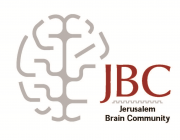
Prof. Hermona Soreq
Hermona Soreq obtained her Ph.D. from The Weizmann Institute of Science in 1976 and joined the faculty of The Hebrew University in 1986. She holds a University Slesinger Chair and is also a founding member of the Edmond and Lily Safra Center for Brain Science. Soreq served as the elected Dean of the Faculty of Science from 2005-2008. She is the author of over 275 publications, including 55 published in Science, Nature, PNAS and other high-impact journals, has been the recipient of co-recipient of over $50M in funding from US, European and Israeli National and private foundations including an Advanced ERC Award and an Israeli I-Core on mass trauma. Soreq’s research is centered on acetylcholine functioning; she pioneered the application of molecular biology and genomics to the study of cholinergic signaling, with a recent focus on its microRNA regulation. She consistently collaborates with basic and clinician experts on cholinergic signaling in health and disease, was recently elected to head the International Organization of Cholinergic Mechanisms, and has one DNA-based drug in phase II clinical trials in a Jerusalem start-up. Soreq serves on The Hebrew University’s Executive Committee and has past and current appointments on scientific advisory boards for national and international bodies with significant interests in life sciences. Dr. Soreq’s honors include: Honorary PhDs from the Universities of Stockholm (1996), Ben-Gurion University (2007), and Erlangen (2008), Teva Founders’ Award (2006), The Lise Meitner Alexander von Humboldt Foundation Award, Germany (2009), a Miller Fellowship at US UC Berkeley (2009) and a Rappaport prize for bio-medical research (2015). She is also on the UK-Israel Council, the International Advisory Boards of BGU’s Center of Biotechnology, the Center of Non-neuronal Cholinergic Mechanisms, Giessen University and the Immunosensation Center of Excellence, Bonn. Finally, 24 of her trainees serve as faculty members in Israel (HUJI, TAU, BGU) and overseas (Berkeley, Maryland, Ann Arbor, Paris, Tours, Gottingen London) and others contribute to government and private biotechnology organizations and companies involved in Life Sciences.
Research Topics: MicroRNAs (miRNAs) rapidly emerge as global regulators of gene expression, yet their roles in brain functioning are largely unknown. We combine advanced sequencing technologies with computational neuroscience and transgenic engineering tools to investigate miRNA functions in the healthy and diseased brain, with a focus on acetylcholine signaling and its ‘CholinomiRs’ microRNA controllers. We discovered cholinergic brain-to-body regulation of anxiety and inflammation, and found "CholinomiR" silencers of multiple genes that compete with each other on suppressing their targets. We currently introduce this dimension of complexity to CholinomiR interactions, clarify its impact on anxiety and neurodegeneration, and test CholinomiR-based intervention with diseases involving impaired ACh signaling. In human volunteers, we find single nucleotide polymorphism (SNP) interference with acetylcholinesterase (AChE)-targeting CholinomiR functioning to associate with elevated trait anxiety, blood pressure and inflammation. In experimental animal models, we study CholinomiR increases under acute stress, inflammation and ischemic stroke, whereas in Alzheimer’s brains we see massive CholinomiRs decline and accompanying modifications in alternative splicing and transcript termination that differ from those of Parkinson’s disease. Finally, we engineer "humanized" mice and neuronal stem cells carrying such primate-specific CholinomiRs for studying their contributions to higher brain functions.

